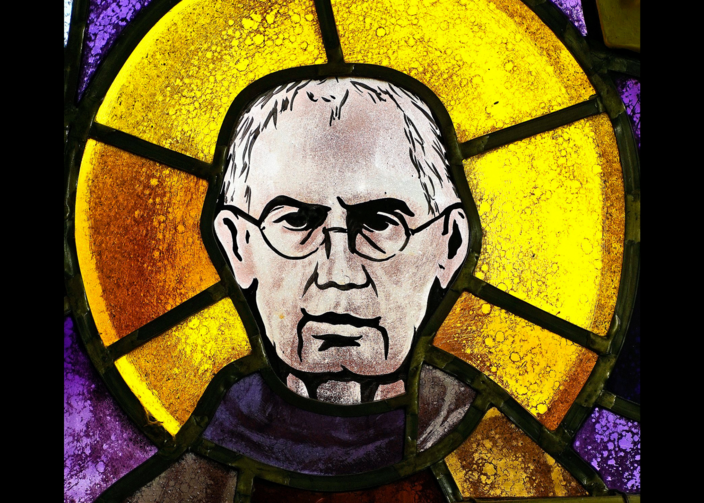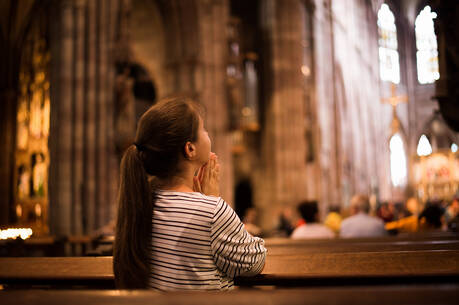A Reflection for the Memorial of St. Maximilian Kolbe
Readings can be found here.
Commentators agree that the second part of today’s Gospel reading, a narrative unique to Matthew, is a peculiar story. It stands out among New Testament narratives for having qualities of a folktale, including a helpful animal and an almost magical deliverance from trouble. It is an odd narrative for Matthew to have juxtaposed with the solemn Passion prediction that leaves Jesus’ disciples in grief.
If there is one factor that unites the two parts of the Gospel and connects them with the first reading, it is the assurance that God will protect and provide even in the face of hostile forces. In the first reading, from the book of Deuteronomy, Moses reminds the Israelites that they went down to Egypt few in number, but in spite of the hardships they faced there, they departed for the promised land as a great nation. They are now to live differently from the Egyptians who had enslaved them, and to protect the rights of the aliens who live among them. They can find the freedom to do this because God is committed to providing for and protecting them. They will never have to adopt the oppressive structures of other nations in order to feel secure.
All we have is the same faith Jesus relied on, the unshakeable love he shared with God and his confidence that God would find a way to save him, even from beyond the grave.
By Jesus’ day, however, things have changed. The Roman Empire ruled the Israelite homeland and the Jewish people were foreigners in their own country. Although the Romans were not as harsh as previous conquerors, they plundered through heavy taxation and this was a source of universal resentment.
Although the tax in today’s Gospel reading may have gone to support the Jerusalem Temple, Jesus and Peter agreed that Roman taxes were, in general, illicit, since they were taken from God’s sons and daughters to enrich foreigners. Although Jesus knew that fate was coming for him, he had a plan to outwit his adversaries. Through Peter’s skill and a helpful fish, he could keep the peace with the hostile forces arrayed against him.
It would be so easy to come away from these readings with a trite lesson like “faith can get us through any challenge.” But such thought-terminating clichés miss the murderous hostility that lurks within the readings and the memorial we observe today. The Egyptian king ordered the murder of Israelite infants; Jesus predicted a gruesome death for himself; Maximilian Kolbe was locked in a bunker and left to starve for two weeks before being executed with carbolic acid. It is a challenge to live according to God’s instruction, as people of compassion and peace, when hostility is always so near. All we have is the same faith Jesus relied on, the unshakeable love he shared with God and his confidence that God would find a way to save him, even from beyond the grave. This is the hope we find in today’s readings. It has been the faith of martyrs in every age and remains the faith of countless Christians facing hostility today.








